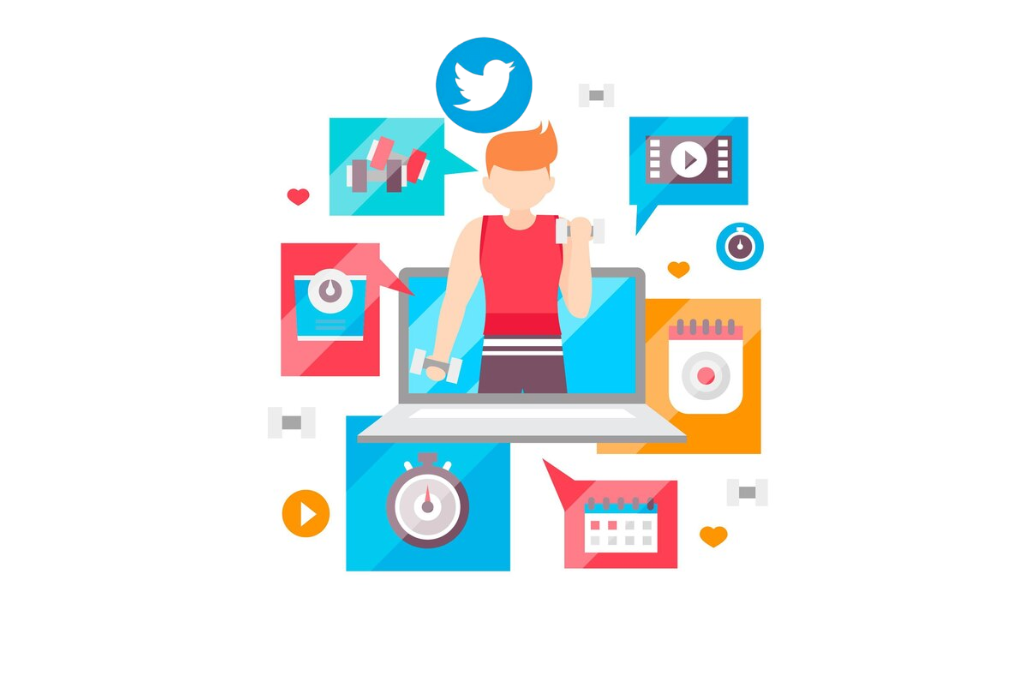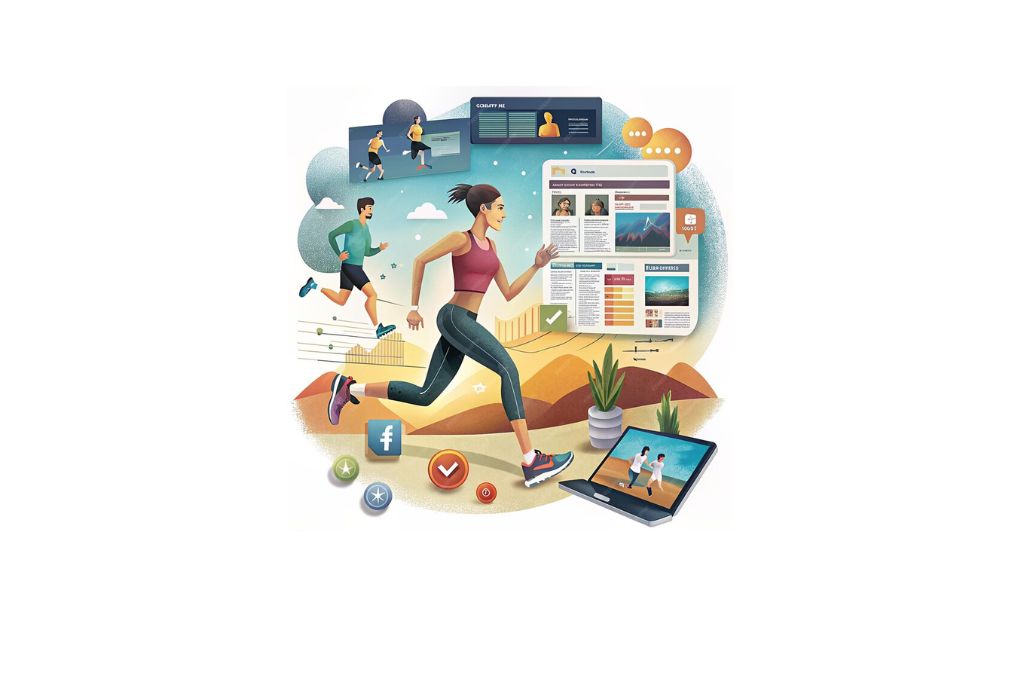The era of social media has ushered in a new reality for athletes on both the amateur and professional level. While athletes can now use social media to directly interact with fans and followers (much to the ire of some in traditional media), with this increased interaction has come a heightened responsibility to their status as role models in society and in many cases, as pieces of larger organizations where the team is greater than the individual.
This listicle provides links to academic sources that analyze these topics in several specific contexts. These include the impact of athletes sharing proprietary big data on competitive advantage as well as athletes’ ability to provoke discussion of pressing social issues via their online brand and social media influence. Also analyzed in the below links to content are the differing gendered roles of male versus female athletes on social platforms.
#1 Athlete Twitter Presence and Media Richness

This article examines the media richness of professional athletes’ Twitter presences (among those from other categories of celebrity). It uses richness theory in its assessment, defined as “measuring a platform, and its affordances, in terms of the ability to deliver ‘rich information’ that can change understanding [of audiences], often by reducing ambiguity”. The article finds that athletes and pop stars have similar richness scores across specific dimensions, including engagement via casual sentence structure, compared to scientists, which score higher in other areas including informational richness.
#2 Athlete-Generated Content Versus Traditional Olympic Coverage

This article examines the impact of new media on coverage of the 2008 Beijing Olympics against the traditional backdrop of radio and television coverage. While the topic is approached in a holistic sense, it does highlight examples of amateur athletes using mobile devices to film Olympic events and share with their followers via their personal social media platforms. It argues that the sense of “liveness” created by athlete-generated content subverted the nationalistic framing of television broadcasts. It also argues that forms of raw, new media-generated content produced by athletes may have attracted new audiences that may not have otherwise been planning to watch the games.
#3 #TakeAKnee and Social Media Impact

This piece examines social media narratives produced by the #TakeAKnee controversy, in reference to kneeling during the national anthem by NFL quarterback Colin Kaepernick and other athletes as a form of social protest. Specifically, it investigates the “extent to which social media users’ ability to express themselves is constrained and/or encouraged by extant social beliefs and technological affordances of social media platforms”. The study produced several key findings, including the prevalence of links to relevant media coverage of the issue on Twitter versus Instagram. Alternatively, Instagram featured more image-driven content (as expected) designed to provoke a more emotional response to the issue. While less focused on actual athlete social media use, this article is notable in that it examines how athlete behavior can impact a variety of social media environments.
#4 Athlete Objectification, Sexualization, and Misrepresentation

While primarily written in the context of college sports, this article has application to professional athletes as well. It examines the prevalence of gendered roles appearing on social media in relation to athletes, their physiques and their accomplishments. It cites examples of male athletes appearing in active performance roles on social media where female athletes tend to be posed in non-active positions. These examples focus on the bodies of female athletes and sexualize them versus celebrating their successes in their respective sports.
#5 Athlete Blogging and Social Networking at the Olympics

This article examines “the dynamics of the media sport cultural complex in a post-broadcast age”, arguing that social media and the web are intensifying the amount of Olympic-related content available across multiple platforms. It uses the 2008 Beijing games as a specific example. It cites the event as one of the first venues where athletes “in particular had access to personal blogs, chat rooms, personal websites and social networking profiles, affording them the ability to bypass officials and news media gatekeepers in communicating their desired messages”.
#6 Grantland Versus Athletes’ Twitter: An Examination of Sports Media Gatekeeping

This article takes a look at sports journalist Bill Simmons’ ESPN-hosted outlet “Grantland” (which is no longer in publication) and its effectiveness in cultivating prestige for ESPN “that broadens its demographic reach and sustains its carefully crafted institutional identity as ‘The Worldwide Leader in Sports'”. It also offers insights into how increasing athlete social media use has impacted traditional sports media. In the article, Simmons is quoted lamenting the impact of Twitter on professional journalism. Most notably, he states that social media enables athletes to communicate directly with fans, which eliminates the gatekeeper role sports journalists such as Simmons have maintained. Simmons is audacious enough to claim “he has the unique authority to decide what counts as legitimate online sports writing”.
#7 Rise and Fall: Evolution of Star Status in Professional Sports

While this article doesn’t specifically reference athlete social media use, it evaluates a variety of other factors, including all-star status, number of championships and teammate pairings with other athletes, in the context of lasting athlete star-power. The results of this study, published in 2011, would be interesting to compare to more current data about social media use as it relates to athlete star-status. Specifically, it would be notable if social media exerted more influence over athlete star-status than some of the non-digital factors named in this study.
#8 Tracing the Relationship between Big Data and Professional Sport

This article examines the relationship between big data, including athlete biometrics and data on training regimes and psychological management, and professional sports. While not a direct evaluation of how this data might impact athletes’ social media use, it does raise some interesting questions. Specifically, it mentions how “the open availability of this data is also a trigger for conflict between the digital media, marketing and financial objectives of a professional sports team, and the on-field performance aims of coaching staff and athletes”. In other words, what would happen if an athlete suddenly started tweeting about this otherwise proprietary data? Would it put them and their team at a competitive disadvantage?
#9 Athletes and Social Media: A Holistic Look

This article, produced by one of my colleagues at Purdue University, is a snapshot of today’s professional athletes’ use of social media for actions including personal branding and the discussion of pressing social issues. On the latter issue, the article cites a tweet from tennis superstar Serena Williams on the topic of postpartum depression and analyzes its impact on generating viral social conversation about the issue. Tweets from basketball superstar LeBron James were also analyzed, specifically in the context of sports league rules and guidelines around player social media use.
#10 Athletes, Social Media, Self-Esteem and Body Image

While primarily a study evaluating the relationship between social media, body image, self-esteem and eating disorders, this study does have interesting implications for athletes and the content and interactions they generate with their followers via social media. Specifically, it states that interactions with athletes on social media “could influence societal standards and virtually support beauty ideals and, in turn, encourage body dissatisfaction”. This underscores the notion that social media is a powerful transmitter of messages about weight and appearance.
#11 Athletes’ Twitter: A Credible News Source?

This article evaluates ethical questions of using Twitter as a legitimate news source as well as what those implications are for audience impressions. It finds that the type of individual (e.g. athlete, celebrity, scientist) quoted on Twitter could impact their credibility. Additionally, it argues that because many professional athletes (among other celebrities) have a strong presence on Twitter, doubts are cast on the credibility of other purported “experts” that also maintain a presence on the platform. Essentially, professional athlete use of Twitter may contribute to the dilution its journalistic credibility.
![]()

